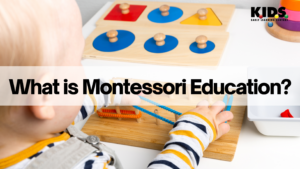Montessori education is an educational approach developed in early 20th century by Italian physician and educator, Dr. Maria Montessori. The Montessori method aims to help children realize their full potential through providing them an environment that matches their unique developmental and educational requirements. Through the Montessori approach, children are empowered and nurtured to grow their sense of self-worth, self-awareness, and self-discipline.
To achieve the Montessori education, educators and administrators have these key principles set in their schools.
- The classroom in a Montessori school is carefully designed to look warm and playful for learning.
- Montessori teachers serve as mentors who encourage kids to pursue their own interests.
- Montessori materials for sensory and practical experiences are available to promote the child’s independent learning.
- The curriculum is suitable to the child’s needs, helping them become more independent in their learning.
- Practical life skills including self-care, social skills, and problem-solving aptitudes are highlighted in Montessori education.
Montessori education is often used in childcare centers, preschool, and the first few years of elementary school. Because of its well-known child-centered approach that promotes independence, creativity, and a lifelong love of learning, the Montessori approach has grown in popularity all around the world.
Are you from Dallas-Fort Worth and looking for a Montessori childcare center for your child? Learn more here via www.kidsearlylearningcenters.com.


